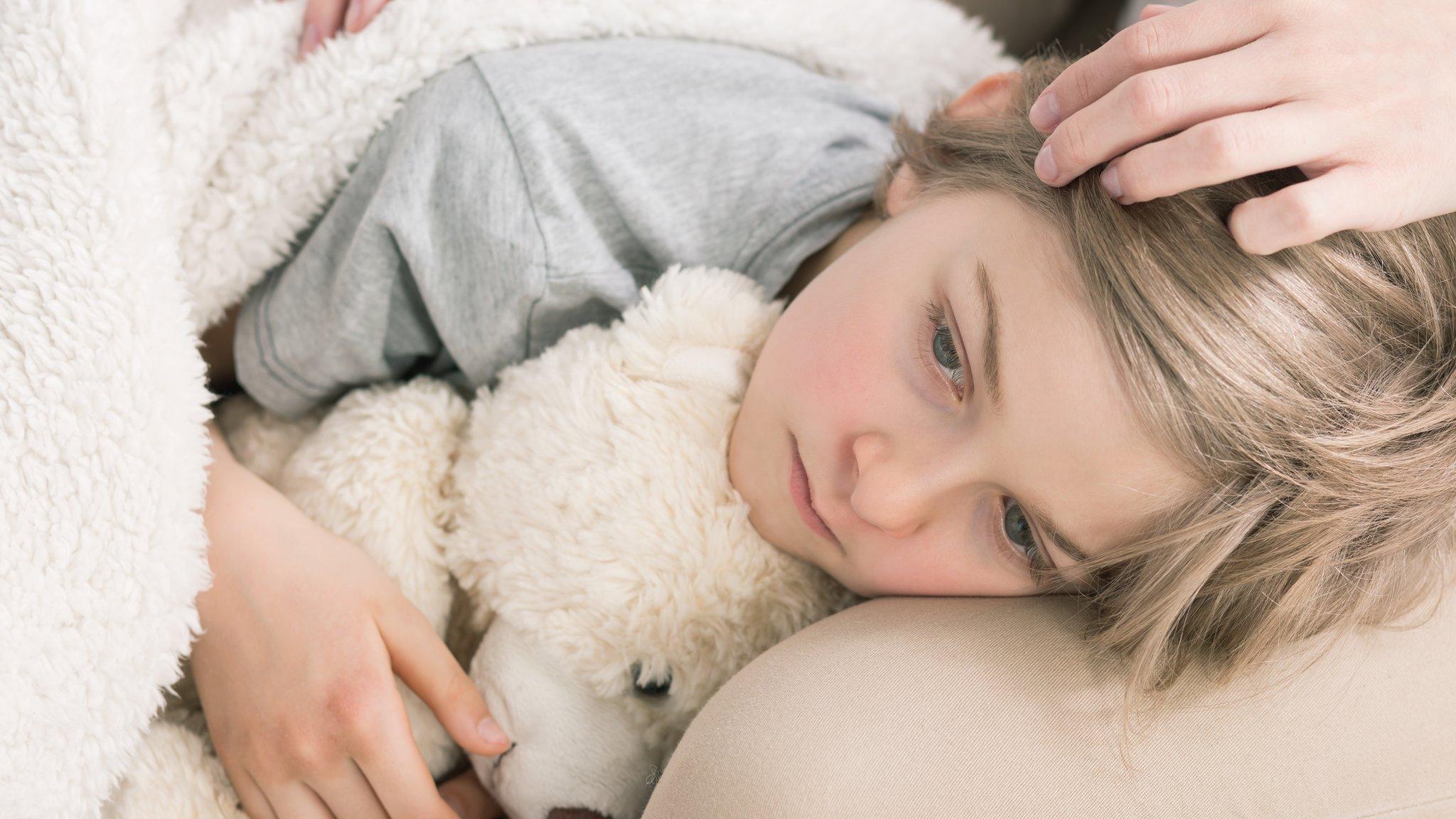'I was suspected of causing my child's illness'
- Published
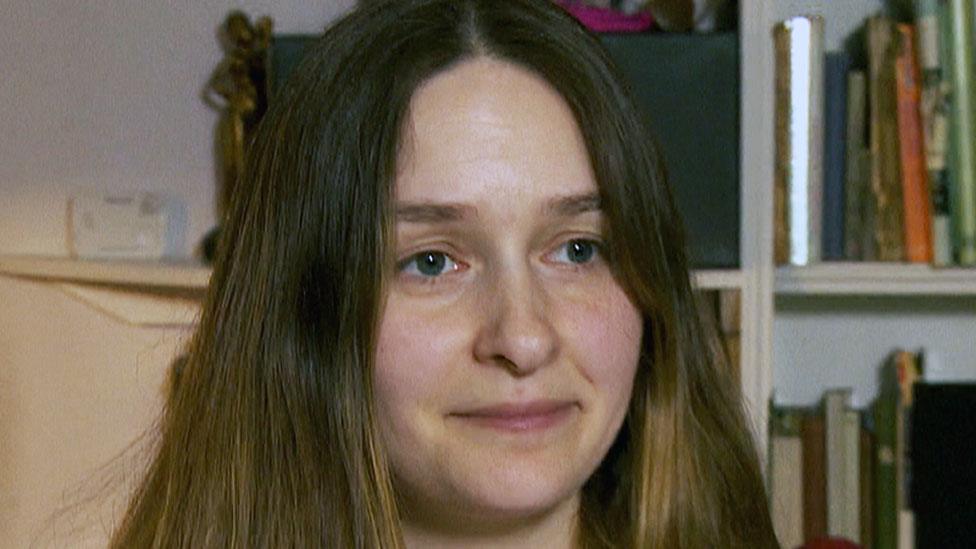
Taliah Drayak was wrongly suspected of Fabricated or Induced Illness
Taliah Drayak's world was "turned inside out" when she was suspected of causing her daughter's illness.
Two-year-old Beatrix had a complex medical history and had been placed on anti-epilepsy medicine but she was struggling to feed and kept vomiting.
Her mother claims to have been treated "like a monster" over concerns she was "inducing" Beatrix's illness.
Her daughter was taken into foster care and the family was not reunited until a year later when the case was dropped.
Taliah, 36, was wrongly suspected of Fabricated or Induced Illness (FII) in relation to her daughter, a condition also known as Munchausen's syndrome by proxy.
FII is a rare form of child abuse, external which occurs when a parent or carer, usually the child's biological mother, exaggerates or deliberately causes symptoms of illness in the child.
'When she was taken away it was just shock'
During the investigation, Taliah, who is a mother of seven, was allowed to continue caring for her other children but Beatrix was removed from the family home.
The toddler spent three months in foster care before an arrangement was made for Beatrix to be cared for by her father Taurean at a separate address, with Taliah getting limited supervised access.
Taliah, from Orkney, told BBC Scotland it was devastating and disorientating to be suspected of making your child ill and have her taken into care.
She says: "When she was taken away it was just shock, a physical shock. You feel like you can't breathe, like you're having a heart attack and when that finally wears off you get to the point when you can start crying."
It was consultant paediatrician Dr Marianne Cochrane, at the Royal Aberdeen Children's Hospital, whose concerns led to a child protection investigation and Taliah being interviewed by the police.
Her other children, her friends and playgroup workers were also interviewed as part of the investigation.
"None of that seemed to resolve anything," Taliah says.
She says the more she asked for help the more she was treated with suspicion.
Taliah and her husband, who is a solicitor, believed Beatrix's symptoms were side effects of the anti-epilepsy medicine.
"It's terrifying because you were living your life and everything was going well and then suddenly everything is blown to pieces," she says.
"It's almost like being told you're crazy. Everything that you lived, you are told that is wrong, you made it up and you fabricated and induced this and you lose your confidence and feel anxious all the time. You're mostly just really broken."
Allowed to return home
Later expert medical reports disagreed with Dr Cochrane's diagnosis and the case was dropped earlier this year.
Beatrix was allowed to return home to live with her siblings without any conditions attached.
Taliah says her daughter, who she was happy to be named but did not want filmed, is now doing well and she is no longer taking the anti-epilepsy medicine.
The family has made a formal complaint about Dr Cochrane to the GMC which confirmed to the Drayaks it was looking into it.
'They did destroy our family and a review needs to be done'
'I felt like I was stripped of being a mum'
The BBC understands Dr Cochrane suspected another family of FII just two months later but that this investigation was subsequently dropped with no parenting conditions attached.
Natalie Whyte's son Callan was just two weeks old when his parents became concerned about his health. His behaviour was very different from his seven-year-old sister.
When he developed small patches on his face Natalie took a photo and went to her GP, who was not concerned.
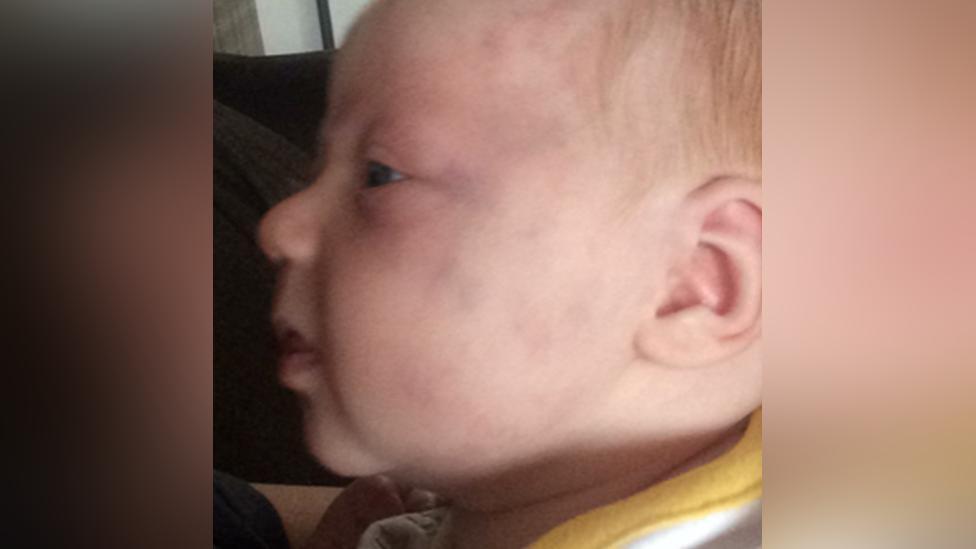
Natalie took photos of the patches on Callan's face to show the doctor
The patches had already disappeared but when she told her health visitor a few days later Natalie says she and her partner Marc were treated like suspects.
The couple, from Insch in Aberdeenshire, were sent to Aberdeen children's hospital and were then told they were not allowed to leave with Callan because they were now under investigation.
After five days of tests in hospital they were not allowed to take Callan home unsupervised and had to have a relative move in with them.
Eventually, following months of investigations, the conditions on the family were removed and Callan was found to have an allergy to dairy products.
Natalie says: "We understand that procedures like this have to happen and we totally support that and have always retained the same opinion but the procedures that they have to follow we don't think are right. It is not a one size fits all.
"I think it is disgusting the power they can use to destroy a family like that because they did destroy our family and a review needs to be done."
'Hugely complex and sensitive subject'
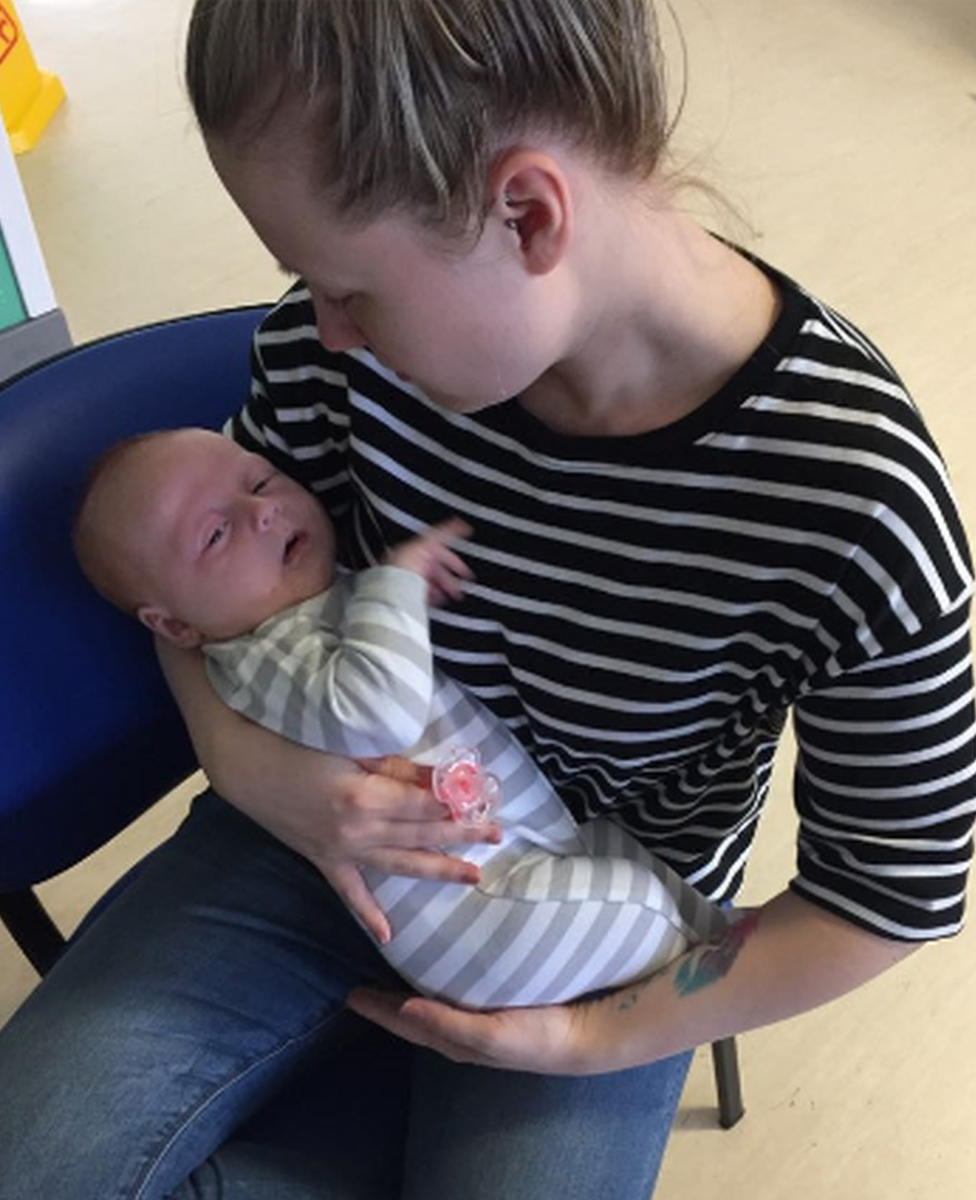
Natalie in the hospital with Callan last year

Grampian Health Board, which covers both cases, said it took child protection "extremely seriously" but could not comment on the individual care offered to patients.
It said it was not aware of any formal GMC proceedings against Dr Cochrane.
Dr Cochrane declined to comment.
Taliah wants changes to the child protection system.
She says: "The entire accusation was based on worries not facts."
There are no national figures on the numbers of cases of FII. One study suggests it is rare. Yet one Scottish council area recorded five cases last year alone.
Some academics say more and more families are being falsely suspected, often because of a failure to diagnose rare illnesses and autism.
Social worker Maggie Mellon told the BBC there were very few actual cases of FII.
"Social workers, doctors need to be aware of that and not regard it as a go-to explanation," she says.
Andy Bilson, emeritus professor of social work at the University of Central Lancashire, says: "It is a really tricky, tricky subject. It is hard to do proper analysis of either the data or the real harm being done to families but it looks very much like we have got a huge increase in this and more and more families are being harmed by our misled attempts to rescue children."
The Royal College of Paediatricians is currently reviewing its guidelines on FII.
A spokeswoman said it was a 'hugely complex and sensitive subject'.
She said there were many reasons why a child's symptoms may be exaggerated by a parent and paediatricians had a duty to ensure children were protected at all times.
- Published11 March 2019
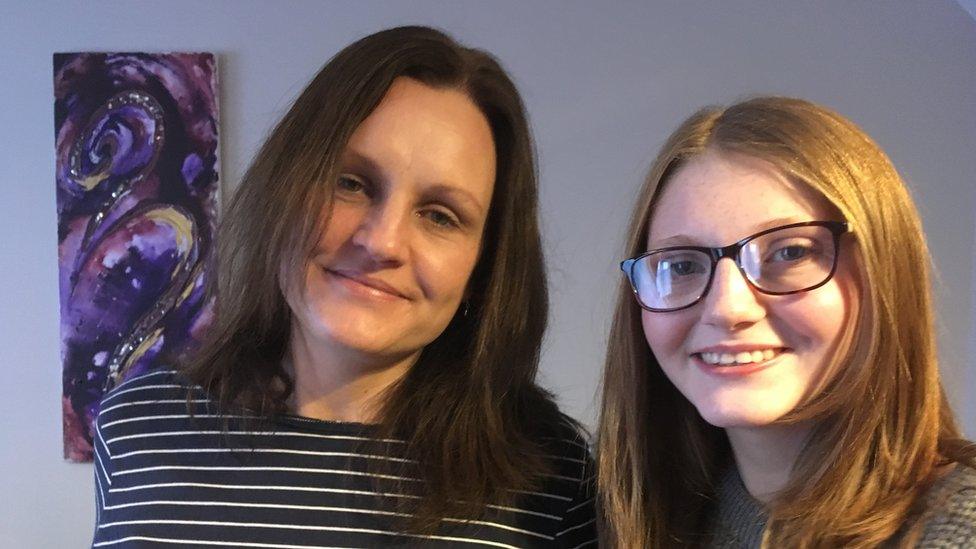
- Published5 May 2019
